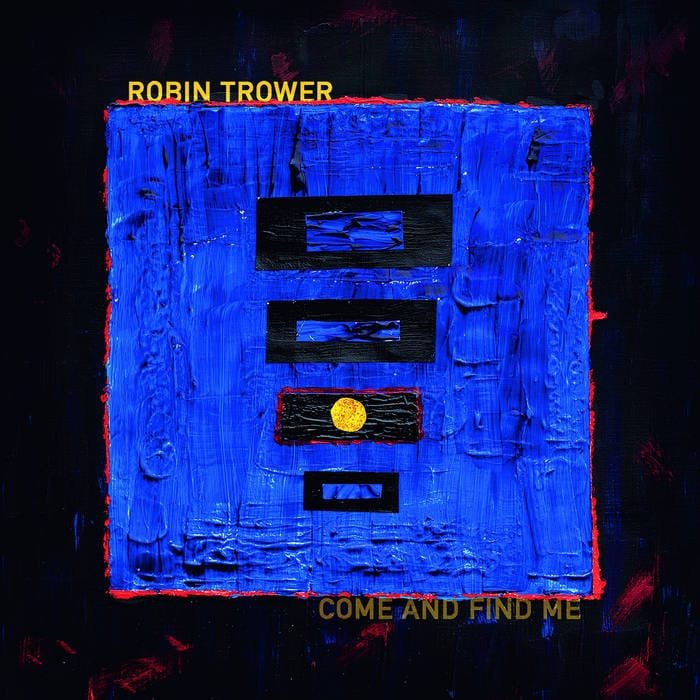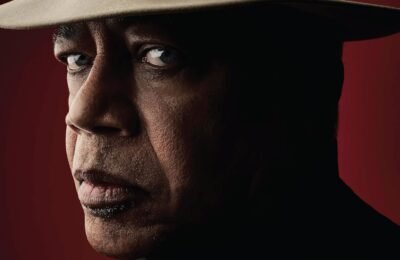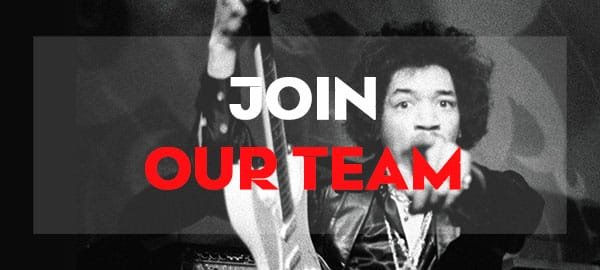Robin Trower has recently released a new album, “Come and Find Me”. This is far from Trower’s first release however. Trower was born and raised in England and played in a variety of bands throughout his life. In the 1960s and 70s, Trower was a member of Procol Harum, the band the artist would become known for. Joining Gary Brooker in 1967, they would release their first album, “A whiter shade of Pale”. Following this, the pair would join the band, and Trower would be a mainstay until 1971.
Following his tenure with Procol Harum, he would play with a variety of other bands, none of which lasted long. In 1973, along with 2 members from former bands, Trower formed The Robin Trower Band. Noted for displaying heavy Hendrix influences, this was arguably the height of Trowers creativity and fame. The following years were filled with tours, album releases and relatively steady work. Unlike many other bands from the era, Trower is still consistently touring and releasing new works.
Trower’s Current band and accompaniments
Robin Trower is accompanied in this studio album, by his regular bandmates. Chris Taggart on drums, whose skills Trower has previously enlisted. Glenn Letsch performs on bass once more. Richard Watts and Jess Hayes both appear also, adding to the vocal performances. This setup has been used in some variation throughout Trower’s recent works, aside from Jess Hayes, who adds some lovely robust voice to her tracks. The sound engineering and mixing were performed by Sam Winfield, who was also responsible for a variety of other aspects in the album development. The combination seems like a win, turning out a polished, well rounded album with a feel of completeness, which is a huge testament to the entire band.
Lead-up to this album
The lead up to this album was relatively quiet. While Trower is still well known, the build-up to the album was almost non-existant. While there was one or two singles released in anticipation of the album, there was very little presence in the media surrounding the release. While this is somewhat understandable, given the regularity of Trower’s releases to date, it almost allowed this gem to slip by my radar. Luckily, it did not, and I got the chance to enjoy the album on its release.
Album at a glance
At a glance, this album, as I mentioned, is polished and mixed masterfully. Trower doesn’t stray from the course with this album, with this being in the same vein as his other works. While some artists will rehash their old work to little avail, Trower makes it work. As opposed to becoming stale or tired, Trower shows that he has long since found his voice, and knows how to use it. The guitar work is reminiscent of the classic 60s and 70s, with strong lead work and catchy riffs. The bass and drums function exactly as intended for this band structure, backing up the sounds and filling it out. The vocals are meshed well with the band and work in alongside the rest of the band. From the first to the last track, there is a maintained theme throughout the album, with nothing feeling hugely out of place.
A little bit of freedom
“A Little Bit of Freedom” is a fantastic way to open the album. The guitarwork from the beginning is a statement for what’s to come. Trower uses a wah throughout the album but it really shines on this track. Interspersed with tasty short licks, the guitar gets a chance to shine at the beginning of this album before the vocals kick in. The vocals join in with a husky but clear voice. This punchy vocal work plays well with the guitar while they take turns taking the spotlight.
The riff and the singing take turns, with the singing between guitar peaks. The guitar knows its place on the track, demonstrating skill while not being the only focus. The vocals on this track display a strength that is well taken advantage of. The solo is tidy, once again displaying a competency while not trying to take too much attention away from the rest. The song also regularly uses the songs title to powerful effect with the term Freedom being a recurring term. The guitar phrasing really stood out to me on this track, and continues throughout the album.
One Go Round
I instantly love the second track, “One Go Round”. I immediately was reminded of the Hendrix style guitarwork as the song launches into a Wah Wah riff. The phrasing through this song mirrors the tone of the previous song. Short tasty riffs with a wah over a steady riff. After giving the guitar a chance to establish the tone, the vocals join in. Similarly to the first song, the vocals come in with a strong presence and husky voice. The drums throughout this track are clean and well mixed. Both bass and drums allow a strong backing for the real focus, the guitar and vocals.
When the voice backs off, the guitar takes focus. When the guitar is between phrases, the vocals take their opportunity. Its well structured and feels like a well planned and practiced song structure. The solo at the end of the song, once again, takes its time. The Trower knows he has your attention and can elaborate without needing to rush. Its not about the notes per second or jumping scales, it just works. While clearly influenced by Hendrix and others, it still feels like its own thing. This track lived up to the promise the first track made and only makes you more invested in the rest.
I Fly Straight to You
“I Fly Straight to You” was instantly one of my favourite songs on the album. The riff is, from the start, an absolute earworm. With a memorable descending riff, this stands out as the most recognisable of the tracks on this album. It felt almost nostalgic for a sound I had never heard. When the guitar isn’t playing the riff, its rocking on the wah quietly, just enough to hear the effect. The vocals on this track are some of the best on the album also. With more range on display, it builds up to higher notes, sustains them and still has that husky sound throughout. This song also gives us 2 solos, a phenomenon thats almost unheard of today. The mid song solo as well as the final solo both show Trowers practiced phrasing. Its almost like hes using the guitar to speak, and it sounds great.
Conclusion
This album accomplishes what it set out to accomplish. It adds to Trower’s long catalogue of releases. While not hitting the same heights in listeners as his early work, its certainly reinforces Trower’s already established sound. With Trower just having turned 80 in March, his continued quality and dedication is extremely admirable. I would advise anyone that hasn’t already, to give this album, and all of Trower’s work, a listen.


















